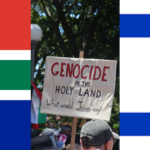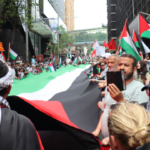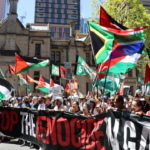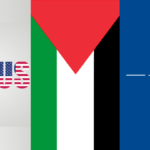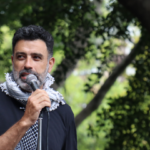World Court Rules Genocide Charge Against Israel Plausible, Yet Australia Cuts Aid to Gaza
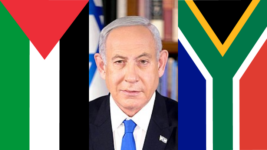
The initial findings regarding the genocide claim South Africa has raised against Israel with the International Court of Justice were delivered last Friday, and they ordered Tel Aviv to take urgent steps to prevent genocide in Gaza, meaning the majority found further investigation is warranted.
Fifteen of the 17 ICJ judges voted in favour of requiring Israel to report to the ICJ in a month’s time on how it has sought to end genocidal practices in Gaza. And the fact that the highest court on the planet has found the genocide case plausible will remain an albatross around that nation’s neck.
The ICJ has a permanent 15 judge panel, and a judicial officer from each nation of the dispute joined it. Fifteen voted that the case warrants further inquiry, with the Israeli and Ugandan justices voting against the finding. But the panel stopped short in issuing a requested ceasefire injunction.
Israeli president Benjamin Netanyahu has rejected the ICJ interim determination, as well as the 26 January provisional measures it issued, adding that “the war is against Hamas terrorists, not Palestinian civilians”, despite the more than 26,000 dead since October almost all being civilians.
The ICJ ruling is binding, however. And if Israel refuses to alter its assault on Gaza, including refusing to increase aid into the Strip, and it doesn’t report on this, South Africa can petition the UN Security Council to enforce the measures, with each member, including the US, holding power to veto this.
The orders of the court
South Africa filed an application charging Israel with breaching its obligations under the Convention on the Prevention and Punishment of the Crime of Genocide on 29 December.
South Africa presented its case at The Hague on 11 January, with Israel denying the charges the following day.
The court ordered last Friday that Israel “take all measures within its power to prevent the commission of all acts within the scope” of article II of the Genocide Convention and, in particular, to four of the five forms of the international crime that are set out in the document.
ICJ president Joan Donoghue outlined that the particular forms of genocide that should be prevented, involve the killing of members of a group, causing serious bodily or mental harm to them, deliberately inflicting conditions to bring physical destruction and the prevention of births.
The World Court further stated that Tel Aviv immediately order its military to not commit these types of atrocities. And Israel has been told to report back to the ICJ on how it has progressed in regard to actioning these measures in a month’s time from the date of issuance.
And 16 of the judges, including Israel, ordered Israel “take all measures… to prevent and punish the direct and public incitement” of genocide and it should also take “immediate and effective measures” to increase the provision of “basic services and humanitarian assistance” into Gaza.
Ending complicity
In the lead up to South Africa’s delivery of its detailed case against Israel, 12 mainly western powers, including Australia, opposed it, while the overwhelming majority of the 153 states a party to the convention, including the Non Alignment Movement of 120 nations, were in support of the claim.
Not only has Netanyahu rejected the binding order, but the US said the ruling does not conflict with its position on the Gaza catastrophe, so it will continue to support the Zionist state in its massacre of Palestinians, and the UK and Canada have reasserted their backing of Israel’s right to defend itself.
In a 27 January statement, The Australian Centre for International Justice outlined that the ruling further reinforces that all nations a party to the convention, including Australia, must do all it can to ensure genocide does not take place in terms of Israel following orders and that it is not complicit.
“This ruling demands concrete steps Australia must take,” said ACIJ executive director Rawan Arraf. “The government must immediately review its economic ties to Israel and impose targeted sanctions. All defence industry partnerships must be suspended.”
Arraf explains that the ruling makes it incumbent on Australia to instate a “two-way arms embargo”, which would require it to stop supplying Israel. Australia currently supplies components for F-35 plan weapons bay doors, as well as it having supplied hundreds of such exports over recent years.
Power corrupts
The Albanese government said prior to the ICJ hearing that it didn’t accept the “premise” of South Africa’s case, despite over 20,000 dead, including 10,000 children, despite the mass killings of healthcare workers and journalists and despite the destruction of a society’s infrastructure.
The leaders of this nation, in particular prime minister Anthony Albanese and foreign minister Penny Wong, have said little in regard to the ICJ finding that there is a plausible case that the wholesale massacre Israel is perpetrating upon the Gaza Strip is genocide.
Both Albanese and Wong were strong supporters of the Palestinian cause prior to taking their top ministerial positions. The party even ran in the last election on a platform that included recognising the state of Palestine.
However, since the Gaza catastrophe commenced Albanese and Wong have shown unbridled support for Israel, both insisting that the mass killings are part of an Israel self-defence strategy. And this is despite the 2.3 million Palestinians of Gaza being walled-in to the region.
Our nation did determine, however, to cut funding to UNRWA, the UN agency for Palestinian refugees, on Saturday. This is the main international body that has been providing aid to Palestinians in Gaza, following Israel having cut off water, food, medicine and power supplies into the region.
UNRWA announced on Friday, that it is investigating allegations that twelve of its staff, since terminated, were involved in the 7 October Hamas attacks on Israel. And this led the US, Australia, Canada and Italy to immediately cut funding to the vital aid agency.


